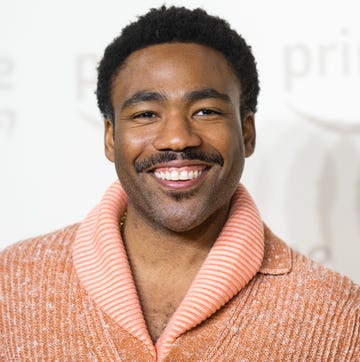Key Takeaways:
- Kathy Bates, the star of Matlock, is a favorite to win the 2025 Emmy Award for Outstanding Lead Actress in a Drama Series.
- Weeks before reading the show’s script, the 77-year-old actor called her agents to discuss retirement. Bates was increasingly frustrated by projects that weren’t reaching audiences and a particularly bad experience on a movie set.
- Matlock convinced her to keep working, and she’s tackling a new role for Season 2.
It wouldn’t have been unreasonable in our modern era of endless reboots for the buzz to have been muted around the debut of the 2024 Matlock, a seemingly boilerplate revival of “that Andy Griffith TV show that wasn’t The Andy Griffith Show.”
But instead, bolstered by a sharp pilot script with a twist that made waves and a titanic titular performance from Kathy Bates, the series received critical acclaim (90% positive on Rotten Tomatoes) and ratings success (an average 6 million viewers per episode). Now, Bates seems poised to win her first Emmy for a leading role.
But it almost didn’t happen.
Bates told The Wrap that when she first saw the script, before she got to the twist, she thought “Oh, I’ve done this before, and I don’t know if I’m interested in playing another lawyer.” In fact, prior to signing on to Matlock, the 77-year-old veteran actor wasn’t sure she was interested in any more roles at all. A few weeks before she received the Matlock script, she had called up her agents, saying she wanted to retire.
Of course, even if she had called it quits before Matlock, she would have still put a cap on an illustrious career that spanned decades.
Bates made her screen debut back in 1971, when she was cast in a small role in the first English-language film by future two-time Oscar-winning filmmaker Milos Forman, Taking Off. But don’t go looking for her name in the credits; she’s actually listed as “Bobo Bates” in the movie, wherein she appears as an aspiring musician alongside future Grammy winner Carly Simon.
It would take another seven years before Bates appeared on the big screen again (1978’s Straight Time), but she kept busy with stage work, first with the touring company Wayside Theatre on Tour and later in Off-Broadway productions.
The 1980s proved a more fruitful period for Bates, who landed some TV roles, appeared in Robert Altman’s Come Back to the Five and Dime, Jimmy Dean, Jimmy Dean alongside Cher, and received a Tony nomination for her work as Jessie Cates in the Pulitzer Prize–winning stage play ’night, Mother. Bates told The Wrap one of her career regrets is not being able to perform the role in the film adaptation (Sissy Spacek played Jessie in the 1986 movie version).
But Bates returning to the role of Jessie isn’t the only “what if” of her early ’80s. According to A.V. Club, Bates spent a fair amount of her time from 1984 to 1986 hanging around a house in Silver Lake, California, frequented by Frances McDormand and Holly Hunter and rented by the sibling pairs Joel and Ethan Coen as well as Sam and Ivan Raimi. But while Hunter and McDormand went on to appear in the Coens’ debut feature, Blood Simple, and Hunter reportedly inspired the character of Bobby Joe in Sam Raimi’s Evil Dead II, Bates is the only one of that collective who never collaborated with either filmmaking sibling pair. We can only imagine what it might have looked like to see her fighting off zombies with a chainsaw in a Sam Raimi gore-fest.
But the horror genre eventually came a-calling for Bates, and when it did, she turned what could have been a tawdry paperback thriller into a star-making, Oscar-winning performance. Taking on the chilling role of obsessive literary fan Annie Wilkes in Rob Reiner’s 1990 adaptation of Stephen King’s Misery, Bates etched herself into horror film history with the iconic “hobbling” scene and so lingered in the memory of Oscar-voting viewers that she managed to beat out established stars like Joanne Woodward, Meryl Streep, and Anjelica Huston for the Academy Award for Best Actress that year (Bates also beat out another star-making performance that year of a very different kind: Julia Roberts in Pretty Woman).
Although it marked her only win, it was just the first of four Oscar nominations for Bates. Three more nods arrived for her roles in Primary Colors (1998), About Schmidt (2002), and Richard Jewell (2019) to say nothing of the Best Picture nominees she appeared in (Midnight in Paris, The Blind Side, and Titanic, which won).
Prior to her Matlock nod this year, Bates received a remarkable 14 Emmy nominations, starting in 1996 for her performance as Jay Leno’s domineering manager Helen Kushnick in The Late Shift. Bates won two of those races, for a guest role in Two and a Half Men in 2012 then for Outstanding Supporting Actress in a Miniseries in 2014 for American Horror Story: Coven.
But the one role Bates often reflects on in her retrospective interviews is one that received little acclaim at the time. Five years after Misery, Bates returned to the work of Stephen King, this time for the titular role in Dolores Claiborne, where Bates played a Maine woman accused of murder.
“I would have obviously loved to do more leads, more meaty roles like Dolores Claiborne,” Bates told The Wrap, “which unfortunately did not get the attention we deserved that year.”
Bates told NPR that Dolores Claiborne was “my favorite role of all the roles that I’ve done.” She spent months preparing for the part by bringing on a movement coach, a dialect coach, and even “the best wig and makeup artists from Italy to help me make that age change” (the movie uses flashbacks to jump through decades). “It’s like veterinary medicine—each part is a different animal,” Bates told Vanity Fair of her preparation. “You’ve got to figure out where the tail is, where the heart is, all that stuff.”
But Dolores Claiborne proved only a moderate success at the box office and didn’t garner any major awards recognition. The movie not receiving the attention it “deserved” at the time (it’s current-day reception is far stronger) compared to the work she put into the project clearly weighed on Bates, and it wasn’t the only time this would occur. Bates, as The New York Times puts it, “has always taken her work to heart in an all-consuming way.”
In recent years, that frustration had begun to take its toll. “I was getting roles that I really cared about in films that no one would see,” she told The Hollywood Reporter earlier this year. One movie shoot in particular went poorly enough to be the straw that broke the proverbial camel’s back. Bates has opted not to name which production it was but has been frank that the process left her, per the Times, “alone, on her sofa in Los Angeles, sobbing.”
“I just thought that maybe I ought to think about putting my house on the market and moving to France or something. I just wanted some real stimulation.”
That stimulation, along with critical adulation, ultimately came in the form of Matlock. Now, not only is Bates poised to potentially pick up her third Emmy for the reboot’s first season, she’s also taking on a new role in the show’s upcoming season, stepping behind the camera to direct. Bates has been cagey about whether she still intends to retire whenever Matlock ends, but she seems so optimistic about the show’s future that it might not be something she has to consider for some time.
Michale Natale is a News Editor for the Hearst Enthusiast Group. As a writer and researcher, he has produced written and audio-visual content for more than fifteen years, spanning historical periods from the dawn of early man to the Golden Age of Hollywood. His stories for the Enthusiast Group have involved coordinating with organizations like the National Parks Service and the Secret Service, and travelling to notable historical sites and archaeological digs, from excavations of America’ earliest colonies to the former homes of Edgar Allan Poe.
















